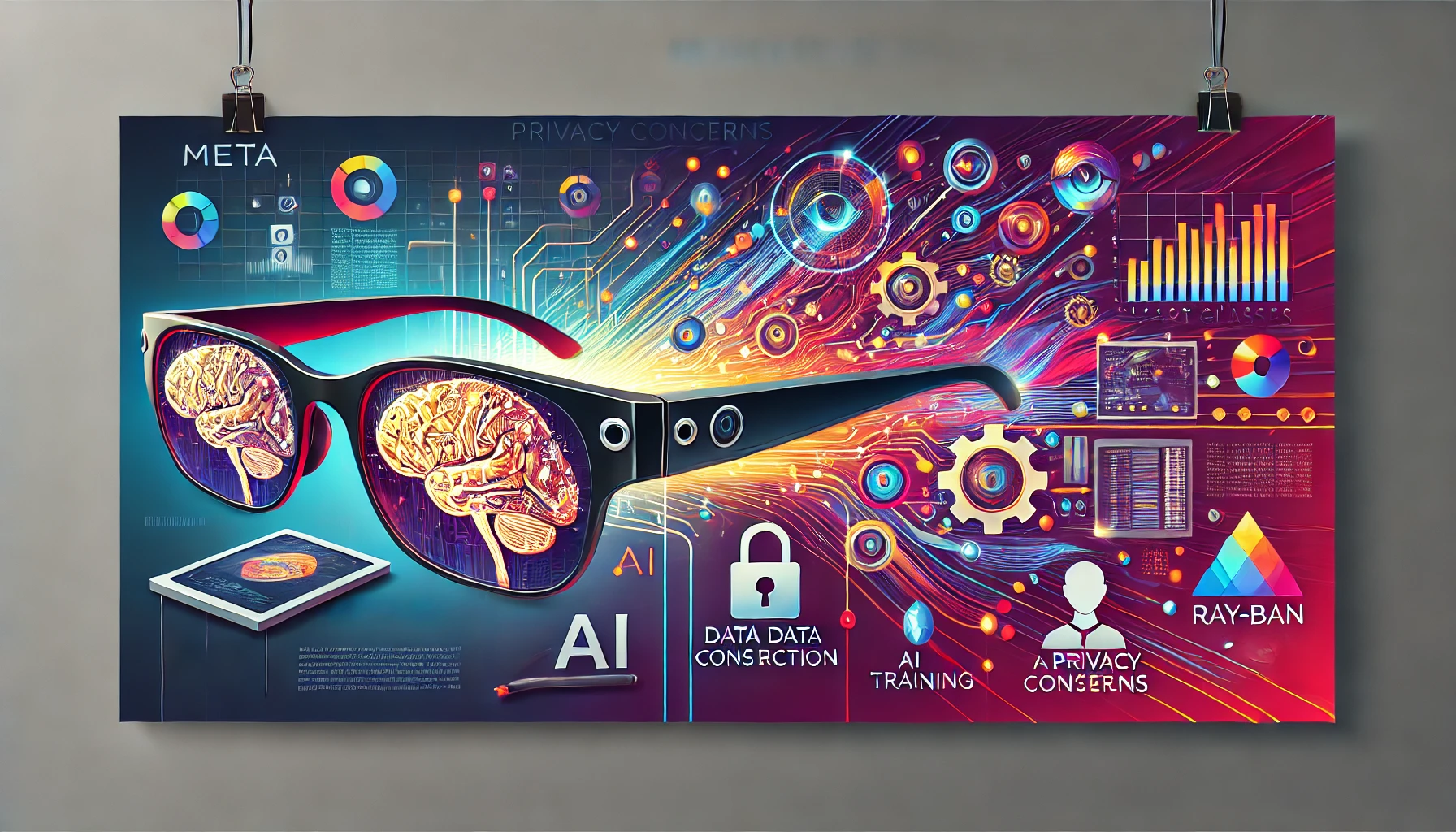The Ethics of AI Training: Does Meta Use Your Smart Glasses Photos for AI Model Development?
Meta’s venture into AI-powered smart glasses has been nothing short of groundbreaking. With products like the Ray-Ban Stories, which blend stylish eyewear with augmented reality and voice-activated controls, Meta has created a new way to interact with technology. But with innovation comes controversy, and recently, Meta has faced scrutiny over whether it uses photos captured by these glasses to train its AI models. While Meta remains vague on this issue, the potential use of personal data for AI training on photos has sparked significant debate about privacy, ethics, and AI development.
In this blog, we will explore the privacy concerns surrounding Meta smart glasses AI, how these devices handle data collection, and the ethical questions around whether Meta AI model training relies on user-generated images.
Meta Smart Glasses and AI: How Do They Work?
Meta’s Ray-Ban smart glasses are at the forefront of AI-powered smart glasses, offering features like photo and video capture, hands-free control, and integration with social media platforms like Facebook and Instagram. These glasses allow users to capture moments in real-time without pulling out a smartphone. But how exactly does Meta smart glasses AI work?
The glasses are equipped with cameras and microphones, which can record audio and video based on voice commands. This integration of AI technology allows for easy sharing and syncing of content across Meta’s platforms. While the capabilities of these smart glasses are impressive, they raise critical questions about smart glasses data collection.
Privacy Concerns Surrounding Meta’s Smart Glasses
One of the biggest concerns with Ray-Ban Meta smart glasses is the potential for passive data collection. When you use these glasses, they may capture more than just your intended photos and videos—potentially recording sensitive moments or even the environment around you without explicit consent from others. Meta privacy concerns are particularly acute when it comes to understanding how the company uses this data.
Meta has been notoriously tight-lipped about how it handles the photos and videos captured by these glasses. The company has not confirmed whether these images are used in AI training on photos, leaving users in the dark. This lack of transparency has contributed to growing unease about the privacy implications of this technology(Neuronad).
Is Meta Training AI on Your Smart Glasses Photos?
So, does Meta use the photos captured by its Ray-Ban smart glasses to train its AI models? Meta has not explicitly denied this possibility. In fact, in a recent statement, Meta’s representatives refused to provide a clear answer, fueling further speculation. Many users fear that their personal photos may be used to improve Meta’s AI algorithms without their knowledge or consent(Neuronad).
The fact that Meta AI model training might rely on such data raises a host of ethical questions. Training AI on personal photos without explicit consent is a major concern, especially given the sensitive nature of some of the images that could be captured. AI privacy issues surrounding the use of personal data in AI development are not new, but with products like smart glasses, the stakes are higher than ever.
The Ethical Dilemma: AI Privacy Issues and Data Use
The potential use of smart glasses data collection for AI model training introduces a critical ethical dilemma. On the one hand, the ability to train AI models on real-world data can significantly improve the performance and capabilities of AI systems. On the other hand, if companies like Meta are using personal photos to train AI without explicit consent, it poses serious AI privacy issues.
Why Privacy Matters in AI Training
At the core of this debate is the question of informed consent. Users should know if their personal data—including photos taken with AI-powered smart glasses—is being used to train AI models. Without clear policies and transparency, companies risk breaching users’ trust and violating their privacy rights. Furthermore, the distinction between public and private data becomes blurred, as users may not fully understand how their data is collected and used(Neuronad).
Meta’s Photo Privacy Policy: What We Know
When it comes to Meta’s photo privacy policy, the company has remained frustratingly opaque. Despite repeated inquiries, Meta has yet to clarify its stance on whether or not it uses images captured by smart glasses for Meta AI model training. This ambiguity has led to widespread speculation and concern among users, privacy advocates, and regulators alike.
While Meta does have general privacy policies that cover the use of data across its platforms, these policies do not explicitly address the specific use of data from Ray-Ban smart glasses. As a result, the privacy concerns around these devices remain unresolved(Neuronad).
What Should Meta Do?
To address the growing privacy concerns surrounding its smart glasses and AI, Meta needs to be more transparent about its data practices. Specifically, Meta should:
- Clarify Data Usage Policies: Meta must provide clear answers on whether it uses data from Ray-Ban smart glasses to train AI models. Users have the right to know how their personal photos are being used.
- Offer Opt-Out Options: Users should be given the option to opt out of having their data used for AI training, especially when it comes to photos captured with smart glasses.
- Strengthen Privacy Protections: Meta should ensure that its smart glasses data collection practices comply with global privacy standards and regulations. This would not only protect users but also help restore trust in Meta’s products.
Transparency is Key to AI Development
As Meta continues to push the boundaries of technology with AI-powered smart glasses, it must prioritize transparency and privacy. The potential use of personal data for AI training on photos without clear consent highlights the growing challenges at the intersection of AI development and data privacy. To move forward ethically, Meta and other tech giants must provide more clarity around their data collection and AI training practices.
For more insights on AI ethics and the latest in tech innovation, visit Regent Studies for comprehensive guides and expert analysis.




